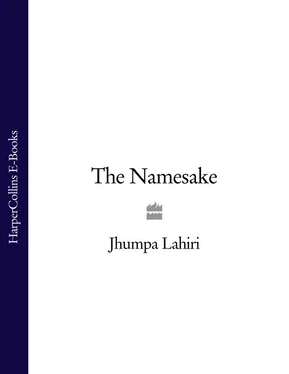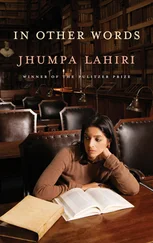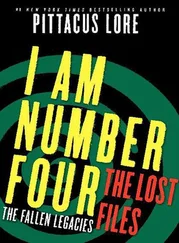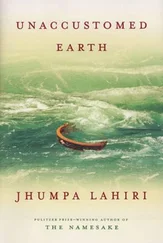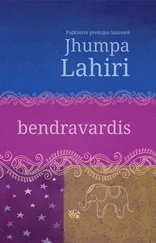1 ...7 8 9 11 12 13 ...17 It is their first piece of bad news from home. Ashoke barely knows Ashima’s grandmother, only vaguely recalls touching her feet at his wedding, but Ashima is inconsolable for days. She sits at home with Gogol as the leaves turn brown and drop from the trees, as the days begin to grow quickly, mercilessly dark, thinking of the last time she saw her grandmother, her dida, a few days before flying to Boston. Ashima had gone to visit her; for the occasion her grandmother had entered the kitchen after over a decade’s retirement, to cook Ashima a light goat and potato stew. She had fed her sweets with her own hand. Unlike her parents, and her other relatives, her grandmother had not admonished Ashima not to eat beef or wear skirts or cut off her hair or forget her family the moment she landed in Boston. Her grandmother had not been fearful of such signs of betrayal; she was the only person to predict, rightly, that Ashima would never change. Before leaving, Ashima had stood, her head lowered, under her late grandfather’s portrait, asking him to bless her journey. Then she bent down to touch the dust of her dida’s feet to her head.
“Dida, I’m coming,” Ashima had said. For this was the phrase Bengalis always used in place of good-bye.
“Enjoy it,” her grandmother had bellowed in her thundering voice, helping Ashima to straighten. With trembling hands, her grandmother had pressed her thumbs to the tears streaming down Ashima’s face, wiping them away. “Do what I will never do. It will all be for the best. Remember that. Now go.”
As the baby grows, so, too, does their circle of Bengali acquaintances. Through the Nandis, now expecting a child of their own, Ashoke and Ashima meet the Mitras, and through the Mitras, the Banerjees. More than once, pushing Gogol in his stroller, Ashima has been approached on the streets of Cambridge by young Bengali bachelors, shyly inquiring after her origins. Like Ashoke, the bachelors fly back to Calcutta one by one, returning with wives. Every weekend, it seems, there is a new home to go to, a new couple or young family to meet. They all come from Calcutta, and for this reason alone they are friends. Most of them live within walking distance of one another in Cambridge. The husbands are teachers, researchers, doctors, engineers. The wives, homesick and bewildered, turn to Ashima for recipes and advice, and she tells them about the carp that’s sold in Chinatown, that it’s possible to make halwa from Cream of Wheat. The families drop by one another’s homes on Sunday afternoons. They drink tea with sugar and evaporated milk and eat shrimp cutlets fried in saucepans. They sit in circles on the floor, singing songs by Nazrul and Tagore, passing a thick yellow clothbound book of lyrics among them as Dilip Nandi plays the harmonium. They argue riotously over the films of Ritwik Ghatak versus those of Satyajit Ray. The CPIM versus the Congress party. North Calcutta versus South. For hours they argue about the politics of America, a country in which none of them is eligible to vote.
By February, when Gogol is six months old, Ashima and Ashoke know enough people to entertain on a proper scale. The occasion: Gogol’s annaprasan, his rice ceremony. There is no baptism for Bengali babies, no ritualistic naming in the eyes of God. Instead, the first formal ceremony of their lives centers around the consumption of solid food. They ask Dilip Nandi to play the part of Ashima’s brother, to hold the child and feed him rice, the Bengali staff of life, for the very first time. Gogol is dressed as an infant Bengali groom, in a pale yellow pajamapunjabi from his grandmother in Calcutta. The fragrance of cumin seeds, sent in the package along with the pajamas, lingers in the weave. A headpiece that Ashima cut out of paper, decorated with pieces of aluminum foil, is tied around Gogol’s head with string. He wears a thin fourteen-karat gold chain around his neck. His tiny forehead has been decorated with considerable struggle with sandalwood paste to form six miniature beige moons floating above his brows. His eyes have been darkened with a touch of kohl. He fidgets in the lap of his honorary uncle, who sits on a bedcover on the floor, surrounded by guests in front and behind and beside him. The food is arranged in ten separate bowls. Ashima regrets that the plate on which the rice is heaped is melamine, not silver or brass or at the very least stainless-steel. The final bowl contains payesh, a warm rice pudding Ashima will prepare for him to eat on each of his birthdays as a child, as an adult even, alongside a slice of bakery cake.
He is photographed by his father and friends, frowning, as he searches for his mother’s face in the crowd. She is busy setting up the buffet. She wears a silvery sari, a wedding gift worn for the first time, the sleeves of her blouse reaching the crook of her elbow. His father wears a transparent white Punjabi top over bell-bottom trousers. Ashima sets out paper plates that have to be tripled to hold the weight of the biryani, the carp in yogurt sauce, the dal, the six different vegetable dishes she’d spent the past week preparing. The guests will eat standing, or sitting cross-legged on the floor. They’ve invited Alan and Judy from upstairs, who look as they always do, in jeans and thick sweaters because it is cold, leather sandals buckled over woolly socks. Judy eyes the buffet, bites into something that turns out to be a shrimp cutlet. “I thought Indians were supposed to be vegetarian,” she whispers to Alan.
Gogol’s feeding begins. It’s all just a touch, a gesture. No one expects the boy to eat anything more than a grain of rice here, a drop of dal there—it is all meant to introduce him to a lifetime of consumption, a meal to inaugurate the tens of thousands of unremembered meals to come. A handful of women ululate as the proceedings begin. A conch shell is repeatedly tapped and passed around, but no one in the room is able to get it to emit a sound. Blades of grass and a pradeep’s slim, steady flame are held to Gogol’s head. The child is entranced, doesn’t squirm or turn away, opens his mouth obediently for each and every course. He takes his payesh three times. Ashima’s eyes fill with tears as Gogol’s mouth eagerly invites the spoon. She can’t help wishing her own brother were here to feed him, her own parents to bless him with their hands on his head. And then the grand finale, the moment they have all been waiting for. To predict his future path in life, Gogol is offered a plate holding a clump of cold Cambridge soil dug up from the backyard, a ballpoint pen, and a dollar bill, to see if he will be a landowner, scholar, or businessman. Most children will grab at one of them, sometimes all of them, but Gogol touches nothing. He shows no interest in the plate, instead turning away, briefly burying his face in his honorary uncle’s shoulder.
“Put the money in his hand!” someone in the group calls out. “An American boy must be rich!”
“No!” his father protests. “The pen. Gogol, take the pen.”
Gogol regards the plate doubtfully. Dozens of dark heads hover expectantly. The material of the Punjabi pajama set begins to scratch his skin.
“Go on, Gogol, take something,” Dilip Nandi says, drawing the plate close. Gogol frowns, and his lower lip trembles. Only then, forced at six months to confront his destiny, does he begin to cry.
Another August. Gogol is one, grabbing, walking a little, repeating words in two languages. He calls his mother “Ma,” his father “Baba.” If a person in the room says “Gogol,” he turns his head and smiles. He sleeps through the night and between noon and three each day. He has seven teeth. He constantly attempts to put the tiniest scraps of paper and lint and whatever else he finds on the floor into his mouth. Ashoke and Ashima are planning their first trip to Calcutta, in December, during Ashoke’s winter break. The upcoming journey inspires them to try to come up with a good name for Gogol, so they can submit his passport application. They turn to their Bengali friends for suggestions. Long evenings are devoted to considering this name or that. But nothing appeals to them. By then they’ve given up on the letter from Ashima’s grandmother. They’ve given up on her grandmother remembering the name, for Ashima’s grandmother, they are told, cannot even remember Ashima. Still, there is time. The trip to Calcutta is four months away. Ashima regrets that they can’t go earlier, in time for Durga pujo, but it will be years before Ashoke is eligible for a sabbatical, and three weeks in December is all they can manage. “It is like going home a few months after your Christmas,” Ashima explains to Judy one day over the clothesline. Judy replies that she and Alan are Buddhists.
Читать дальше
